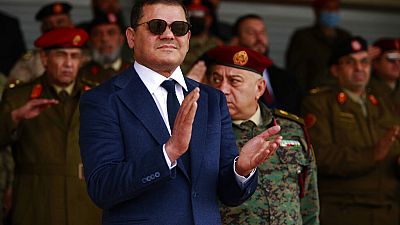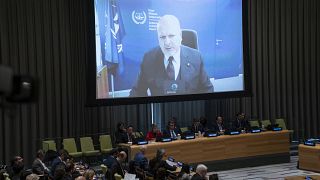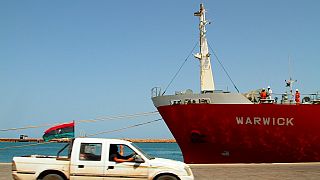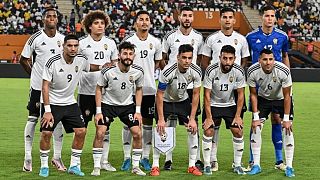Libya
A few weeks before a deadline to organize elections in Libya, the sidelining of the head of the parallel government in the East reflects the beginning of a rapprochement behind the scenes between the strong man of this region and the camp of the West, recognized by the UN, according to analysts.
Libya, an oil-rich country, has been plagued by chaos and deep divisions since the 2011 uprising that toppled the dictatorship of Muammar Gaddafi.
Two governments have been vying for power there for a year: one based in Tripoli (west), led by Abdelhamid Dbeibah, the other in the east, supported by the very powerful Marshal Khalifa Haftar.
Designated "Prime Minister" in March 2022 by the Parliament sitting in the East with a view to dislodging the government of Tripoli, Fathi Bachagha was "suspended" on May 16, after having failed to oust his rival.
This suspension was voted during a closed session of Parliament in opaque conditions and in the absence of the president of this body Aguila Saleh.
"The humiliating departure of Bachagha reflects differences within the eastern camp, in particular between the Haftar clan" and Aguila Saleh, the other great figure in the East, analysis for AFP Hasni Abidi, director of the Center for studies and Research on the Arab and Mediterranean world (Cermam) in Geneva.
In the meantime, "Dbeibah has taken advantage of the paralysis of the eastern government to consolidate its grip on political and economic life in Libya", he adds.
In May 2022, Mr. Bachagha had attempted a coup to enter Tripoli, but after violent clashes, his supporters had been repelled.
Installed since then with his government in Sirte (center), he has gradually faded away and seems to have lost the essential support of Marshal Haftar.
Originally from Misrata, a large western port, Fathi Bachagha approached Haftar at the end of 2021 in the name of "national reconciliation" after the postponement of elections to end the clashes following the fall and death of Gaddafi.
Former Minister of the Interior, Mr. Bachagha had also allied himself with Aguila Saleh.
For the Haftar clan, "Bachagha always had an expiration date and his usefulness ended the day he lost the possibility of settling in Tripoli" , estimates Emadeddin Badi, of the Global Initiative think tank.
The suspension of Mr. Bachagha was decided a month before mid-June, the deadline set by the UN to bring the Libyan rivals to agree on a legal basis allowing the holding at the end of 2023 of presidential and legislative elections postponed for two years and supposed to pacify the country.
It occurs especially against a background of rapprochement between the entourages of MM. Haftar and Dbeibah, according to media and experts.
"Ibrahim Dbeibah, nephew of the Prime Minister of Tripoli, and Saddam Haftar, the Marshal's most active son, have been in almost continuous talks for months," researcher Jalel Harchaoui, a specialist in Libya, told AFP. Their desire to get along "is one of the reasons for the fall of Bachagha" , according to him.
But he also points out that if Mr. Bachagha was dismissed it is "largely" because he would have refused to grant "irregularly" public funds to Marshal Haftar.
The two clans have established "a dialogue which has now matured enough for the Haftars to offer the suspension of Bachagha" as a gift to the authorities in Tripoli, added Mr. Badi of the Global Initiative.
And this with the "blessing" of Egypt, an ally of the Eastern camp and until then fiercely opposed to Mr. Dbeibah.
Libyan political analyst Abdallah al-Rayes also reports "discreet negotiations in Cairo" between representatives of Haftar and Dbeibah with a view to "forming a new coalition government" or a reshuffled executive. An essential step before any possible agreement to organize elections, according to him.
But for Mr. Harchaoui, "the elites already well in place today (...) have absolutely no intention of leaving power in order to allow credible and authentic elections".












00:58
Somaliland opposition leader wins presidential poll
01:00
Somaliland counts votes after pivotal election
01:10
Voters head to polls in Somaliland as leaders hope for global recognition
01:11
Chad's electoral body disqualifies senior ruling party official
01:44
Mauritius heads to the polls in wake of wiretapping scandal
Go to video
Why Mozambique's election has sparked weeks of protests and a violent crackdown by police